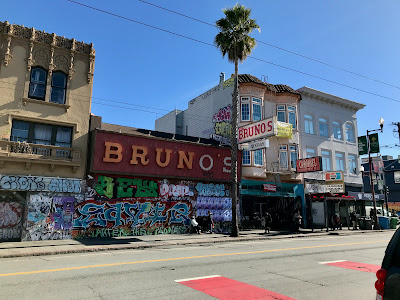There's all sorts of evidence that the U.S. economy is humming along happily. Many economic indicators say we've recovered from the terrible bottom this fictional entity plunged to during the pandemic. People are working and earning. Heather Cox Richardson wrote last week:
The December jobs report from the Bureau of Labor Statistics showed that job growth continues strong. The country added 223,000 jobs in December, and the unemployment rate went down slightly to 3.5 percent. The last two years of job growth are the strongest on record, and the country has recovered all the jobs lost during the pandemic. According to the White House, 10.7 million jobs were created and a record 10.5 million small businesses’ applications were filed in the past two years.
On Monday the Wall Street Journal reported that median weekly earnings rose 7.4% last year, slightly faster than inflation. For Black Americans employed full time, the median rise was 11.3% over 2021. A median Hispanic or Latino worker’s income saw a 4.8% raise, to $837 a week. Young workers, between 16 and 24, saw their weekly income rise more than 10%. Also seeing close to a 10% weekly rise were those in the bottom tenth of wage earners, those making about $570 a week. The day after the Wall Street Journal’s roundup, Walmart, which employs 1.7 million people in the U.S., announced it would raise its minimum wage to $14 an hour, up from $12.
All true, but, somehow, many of us find it hard to believe these are good times.
Economist Paul Krugman has noticed the disjunction between the statistics and what we believe. He asked in the NYTimes, Will Americans Even Notice an Improving Economy?
Political observer Brian Beutler knows something is out of kilter:
The reality of our strong economy has not defined perceptions of it, which have tended to resemble doom-laced political reporting and outright propaganda, rather than raw data gathered by government agencies and other researchers. A huge percentage of Americans believes that the country is in the midst of a recession. [It's not.]
It shouldn't be surprising that the various information media -- even if they aren't in tank for the Republicans -- should overestimate the bad economic news. That's what attracts an audience.
Here in San Francisco, I find it not surprising that people feel the economy sucks. We've been living a tech boom for a decade, so big layoffs in the sector feel scary and novel (and crummy for the people laid off). A young man in our household is part of the collateral damage of tech retrenchment. He'll be able to find another job, but it's tough that he has to.
Further, this city has not fully recovered from the pandemic bust. Downtown S.F. still has North America’s weakest pandemic recovery, reports the Chron.
And out in the 'hood, Mission Street sure doesn't look like it is experiencing a vibrant recovery.
Maybe the vacancies and boarded up storefronts are just normal urban churn, but it sure feels as if something died and has not yet been replaced.
There's no local election this year in which to take out our sense of gloom and doom on our office holders. But 2024 could be something of a local earthquake if the powers-that-be can't help the city feel as if it is humming again.


No comments:
Post a Comment